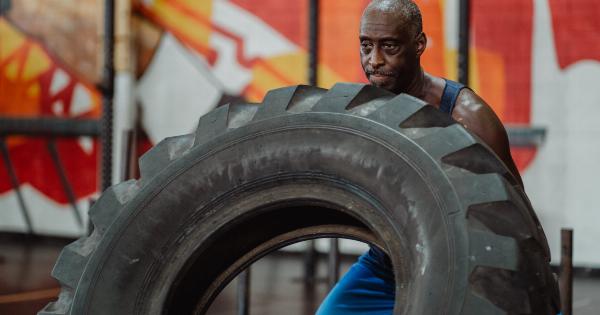Dementia is a condition characterized by a decline in cognitive abilities that affect a person’s daily functioning.
It is a progressive disease that mainly affects older adults, with Alzheimer’s disease being the most common form of dementia. While there is no cure for dementia, research suggests that staying physically, mentally, and socially active may help reduce the risk of developing this debilitating condition.
This article explores the importance of staying active and provides practical tips for incorporating activity into your daily routine to maintain cognitive health.
The Role of Physical Activity
Regular physical activity is not only crucial for maintaining physical health but also plays a vital role in promoting mental well-being.
Engaging in physical exercise increases blood flow to the brain and stimulates the release of neurotransmitters that promote brain health and function. Studies have shown that individuals who engage in regular exercise throughout their lives may have a lower risk of developing cognitive decline and dementia.
Types of Physical Activity for Brain Health
When it comes to brain health, not all exercise is created equal. Certain types of physical activity have shown particular benefits for preventing dementia:.
1. Aerobic Exercise
Aerobic exercise, such as brisk walking, jogging, swimming, or cycling, has been linked to improved cognitive function. These activities increase heart rate and oxygen flow to the brain, promoting the growth of new blood vessels and brain cells.
2. Strength Training
Strength training exercises, such as lifting weights or using resistance bands, help maintain and build muscle mass.
Research suggests that resistance training may enhance cognitive function by improving brain plasticity and increasing the production of growth factors that support brain health.
3. Balance and Coordination Exercises
Activities that improve balance and coordination, such as yoga or tai chi, can be beneficial for both physical and cognitive health. These exercises require concentration and sensory awareness, stimulating the brain and promoting cognitive function.
Mental Stimulation for Brain Health
In addition to physical exercise, keeping your mind intellectually engaged is essential for preventing cognitive decline. Mental stimulation helps build cognitive reserve, a sort of protection against brain damage and deterioration in the future.
Here are some activities that can help keep your mind sharp:.
1. Reading and Learning
Engaging in reading books, newspapers, or magazines stimulates the brain and enhances cognitive function. Learning new subjects or skills can also challenge your brain, contributing to its overall health and preventing cognitive decline.
2. Puzzles and Brain Games
Playing puzzles, crosswords, sudoku, or other brain games can help improve memory, attention, and problem-solving skills. These activities force your brain to work and form new connections, promoting brain health.
3. Social Interaction
Staying socially active and maintaining a strong support network is crucial for overall well-being and brain health.
Engaging in activities with others, such as joining clubs, volunteering, or participating in group workouts, provides mental stimulation and emotional support, reducing the risk of cognitive decline and depression.
Tips for Incorporating Activity into Daily Life
Leading an active lifestyle doesn’t have to be complicated. Here are some practical tips to help you incorporate physical and mental activity into your daily routine:.
1. Start Slowly
If you have been inactive for a while or have any health concerns, start slowly and gradually increase your activity level. Consult with your healthcare provider before beginning any new exercise regimen.
2. Find Activities You Enjoy
Choose physical activities that you genuinely enjoy doing. Whether it’s dancing, swimming, gardening, or playing a sport, finding pleasure in the activity will make it easier to stick to it in the long run.
3. Set Realistic Goals
Set achievable goals that are specific, measurable, attainable, relevant, and time-bound (SMART goals). This approach helps you track your progress and stay motivated, increasing your chances of success.
4. Make it a Habit
Consistency is key. Aim for at least 150 minutes of moderate-intensity aerobic activity per week, along with strength training exercises on two or more days.
Incorporate mental stimulation activities into your routine regularly, such as reading for 30 minutes each day or solving puzzles.
5. Get Creative with Everyday Activities
You don’t always have to set aside a specific time for physical or mental activities. Find ways to incorporate them into your daily life.
For example, take the stairs instead of the elevator, engage in active hobbies like gardening or dancing, or listen to audiobooks or educational podcasts while doing household chores or commuting.
Conclusion
Incorporating physical, mental, and social activity into your daily routine is crucial for maintaining cognitive health and reducing the risk of dementia.
Regular exercise, mental stimulation, and social interaction help promote brain health, enhance cognitive function, and build cognitive reserve. Start by making small changes and gradually increase your activity level. Remember, staying active is not only beneficial for your body but also for your mind.































